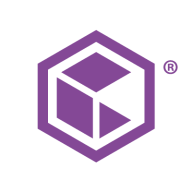
![Quest Rapid Recovery [EOL] Logo](https://images.peerspot.com/image/upload/c_scale,dpr_3.0,f_auto,q_100,w_64/gx7fdc2s39xboxn6pa3oukdu9s75.png?_a=BACAGSGT)
Commvault Cloud and Quest Rapid Recovery [EOL] compete in the enterprise data backup and recovery category. Commvault Cloud appears to have the upper hand due to its comprehensive feature set and robust integration with cloud environments, despite its complexity issues.
Features: Commvault Cloud offers robust backup and recovery capabilities, advanced data management with deduplication, and seamless hybrid cloud integration. Quest Rapid Recovery [EOL] provides ease of use, rapid VM recovery, and efficient replication, although its features are more limited.
Room for Improvement: Commvault Cloud users often mention interface complexity, a need for better documentation, and improved deployment processes. Quest Rapid Recovery [EOL] faces challenges with support responsiveness and feature limitations, particularly around its core backup functions.
Ease of Deployment and Customer Service: Commvault Cloud offers versatile deployment models for private, hybrid, and public clouds, but this flexibility can lead to complexity. Its technical support receives mixed reviews concerning responsiveness and quality. Quest Rapid Recovery [EOL] is valued for its straightforward on-premises deployment, though customer service is inconsistent and affected by regional variations.
Pricing and ROI: Commvault Cloud's pricing is competitive for enterprise solutions but sometimes considered high relative to smaller environments. The cost is balanced by reduced management complexity and operational savings. Quest Rapid Recovery [EOL] may be viewed as expensive given its limited feature scope, yet offers ROI through decreased labor costs and efficient resource management.


| Company Size | Count |
|---|---|
| Small Business | 57 |
| Midsize Enterprise | 24 |
| Large Enterprise | 82 |
| Company Size | Count |
|---|---|
| Small Business | 16 |
| Midsize Enterprise | 5 |
| Large Enterprise | 2 |
Commvault Cloud is the ultimate cyber resilience platform built to meet the demands of the hybrid
enterprise. Beyond its core functionality of data backup and recovery across diverse workloads, including applications, databases, virtual machines, and files, Commvault Cloud stands out as a robust defense against ransomware. Going beyond backup, the platform integrates advanced data security features such as encryption, access control, and threat detection, safeguarding against unauthorized access and cyber threats.
With tools for data management, classification, and migration, businesses can optimize storage costs, enhance accessibility, and comply with regulations seamlessly. Boasting cloud integration with major providers like AWS, Azure, and Google Cloud, Commvault Cloud leverages the scalability and flexibility of the cloud for comprehensive data protection and management. The platform's automation capabilities streamline tasks, and its reporting and analytics features provide valuable insights into data usage, potential risks, and optimization strategies. Commvault Cloud is not just a security tool; it is a key component of cyber resilience, enabling organizations to not only protect against cyberattacks but also recover swiftly and minimize the impact of incidents. Elevate your cyber resilience strategy with Commvault Cloud.
Quest Rapid Recovery [EOL] provides easy-to-use backup and recovery capabilities, emphasizing granular recovery and point-in-time restoration with simple installation, data replication, and user-friendly navigation.
Quest Rapid Recovery [EOL] helps manage infrastructure environments with features supporting disk backup, archiving, VM standby, and replication. Despite limitations like sluggish GUI, lack of support for tape and Mac, and high memory use, users appreciate its real-time data replication and strong reliability. The tool is employed in on-prem deployments and aids in disaster recovery, protecting data across cloud and on-premise servers, securing databases, and facilitating quick recovery during failures.
What are Quest Rapid Recovery [EOL]'s key features?Quest Rapid Recovery [EOL] is integral for industries requiring robust data protection, encompassing crucial server and database backups in compliance-focused environments with SQL databases and Hyper-V hosts, ensuring swift and dependable recovery solutions.
We monitor all Backup and Recovery reviews to prevent fraudulent reviews and keep review quality high. We do not post reviews by company employees or direct competitors. We validate each review for authenticity via cross-reference with LinkedIn, and personal follow-up with the reviewer when necessary.